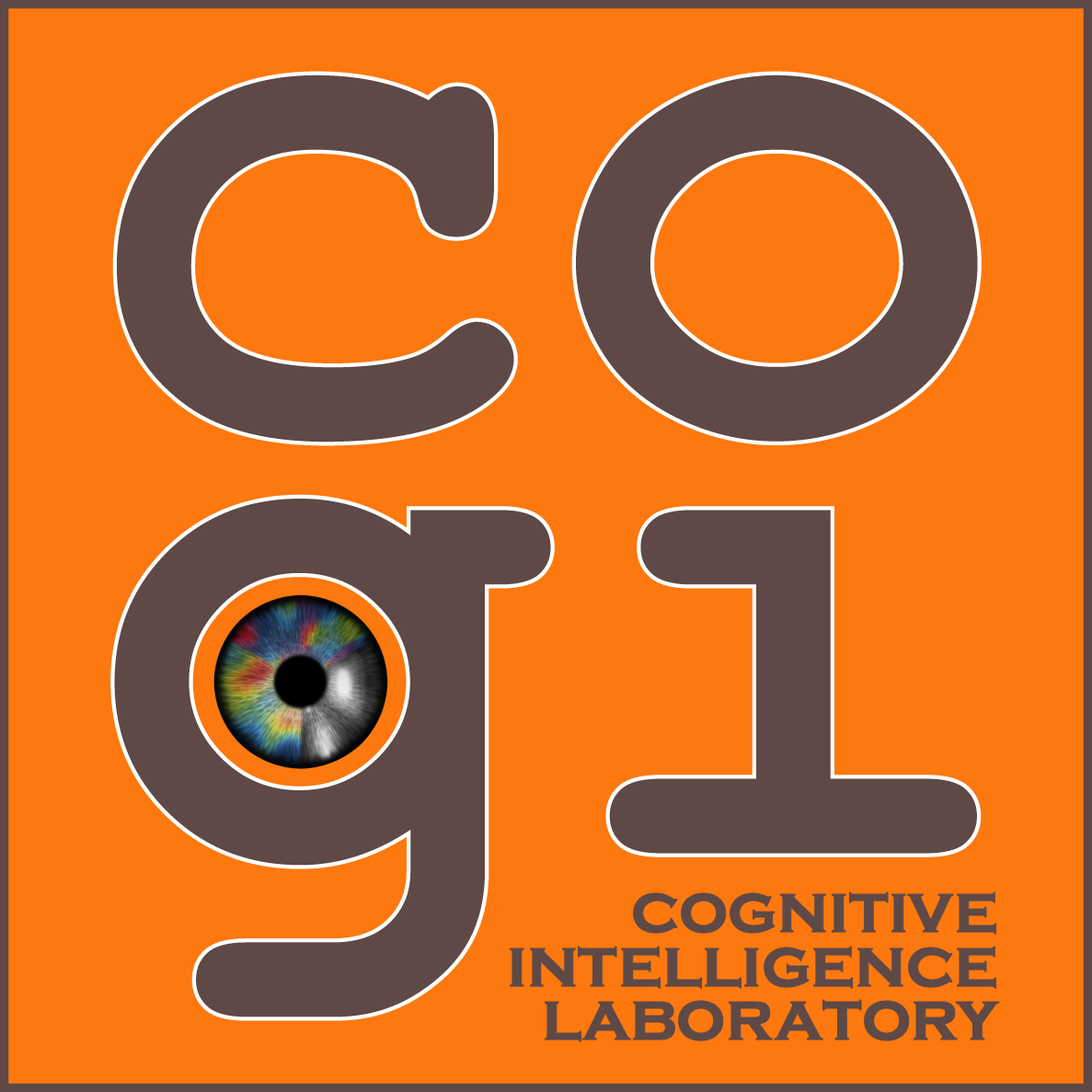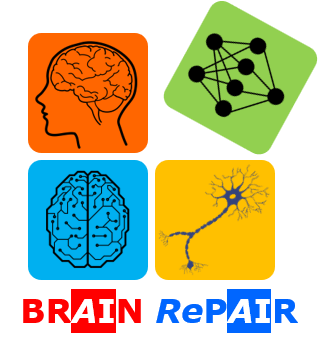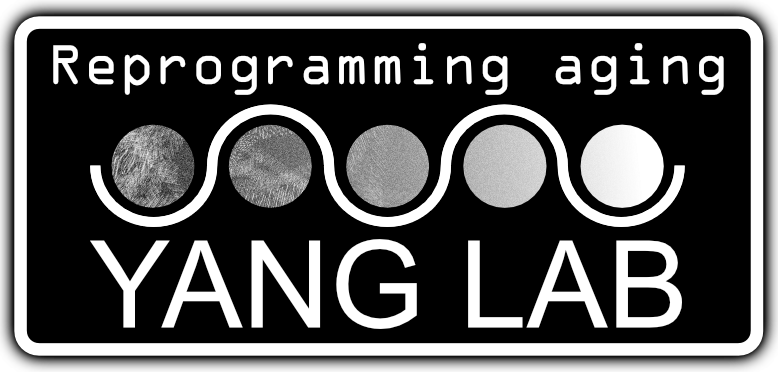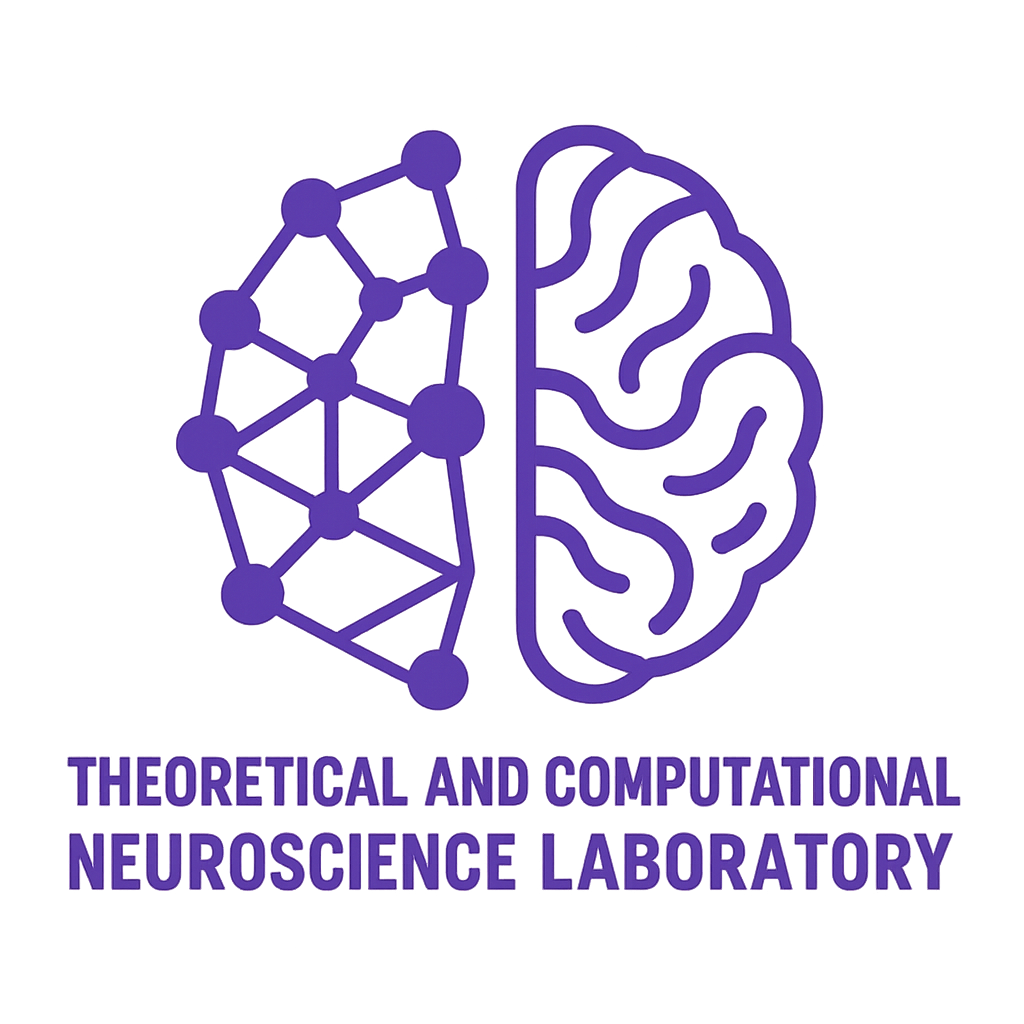Research Labs
- Decision neuroscience
- Nonlinear brain dynamics
- Brain-robot interface
- Brain-inspired artificial intelligence
- Computational psychiatry
- Theoretical and computational neuroscience
- Complex network analysis of connectome
-
Lab Director :
Jaeseung Jeong
-
Lab Introduction :
Decision Neuroscience Laboratory (Principal investigator: Jaeseung Jeong, Ph.D) aims at discovering fundamental principles underlying decision processes of the brain and at ultimately understanding human minds. We use neuroimaging tools including the EEG and fMRI and utilize advanced analysis methods, such as nonlinear brain dynamics, complex network theory, Bayesian inference and machine learning techniques, to explore brain dynamics of decision-making. Behavioral economics paradigm has been used to examine the economic and social decision-making in humans. Based on this complex brain dynamics of decision, we clinically investigate psychiatric disorders (depression, suicide, addiction, autism etc.) and neurological disorders (Alzheimer's disease, Parkinson's disease, stroke etc.) in the frame of computational psuchiatry and apply to brain-robot interface and brain-inspired artificial intelligence within brain engineering.
- Movement disorder
- Motor circuit
- AI & Neural engineering
-
Lab Director :
Daesoo Kim
-
Lab Introduction :
We utilize various neural manipulation and recording techniques such as optogenetics and calcium imaging to identify the function of neural circuits. Our behavioral analytics platform, developed using computer vision, allows us to analyze effects of drugs and neural manipulation on behavior in detail.
- Computational and Theoretical Neuroscience
- Model Neural Network
- Visual Perception
- Working Memory
- Innate Brain Function
- Evolution of Natural and Artificial Intelligence
- Multi-agent system
- Behavioral diversity
-
Lab Director :
Se-Bum Paik
-
Lab Introduction :
We perform research using tools from computational and theoretical neuroscience, to comprehend a wide range of topics including the origin and development of cognitive intelligence in both biological and artificial neural networks, the principles of evolution and the behavioral diversity of individuals in multi-agent systems, and many more.
- Brain-inspired AI
- computational neuroscience
- decision neuroscience
- machine learning
- reinforcement learning
- inference
-
Lab Director :
Sang Wan Lee
-
Lab Introduction :
Our lab uses machine learning theory and algorithms to understand "how" the brain thinks (Brain↦AI) and "why" the brain implements such computations (AI↦Brain).
Laboratory of sociality and emotions
- Neural circuits
- Neuromodulator
- Social behavior
- Emotion
- Stress
-
Lab Director :
Jeong-tae Kwon
-
Lab Introduction :
We study about the principles of neural circuits and neuromodulators responsible for sociality and emotions.
- Brain-Computer Interfaces
- Neural Prosthetics
- Visual Prosthesis
- Deep Brain Stimulation
- Implantable/Wearable Medical Devices
- Electric/Magnetic Neural Stimulation
- Neuro-Cognitive Disorder Treatment/Rehabilitation
-
Lab Director :
Seungwoo Lee
-
Lab Introduction :
The BINP Lab at KAIST develops novel brain interfaces and neural prosthetic technologies that can help diagnose and treat a wide range of neurological and cognitive disorders.
- Neurodegenerative diseases
- hiPSC
- Brain organoids
- AI-based platform for drug discovery
- Mitochondrial dysfunction
- Protein aggregation
-
Lab Director :
Minee-Liane Choi
-
Lab Introduction :
The Brain Repair Lab at KAIST specializes in the use of human-induced pluripotent stem cells (hiPSCs) obtained from individuals with neurodegenerative diseases. The primary objectives of this laboratory arefirstly, to gain insights into the underlying causes of different neurodegenerative disorders for therapeutics, and secondly, to create an AI-driven platform for personalizing drug and therapeutic solutions to meet the specific needs of individual patients.
- Molecular Neuroscience
- Alzheimer’s disease
- Parkinson’s disease
- Neuron
- Glia
- Neuroinflammation
- Disease modeling
- Drug development
-
Lab Director :
Tae-In Kam
-
Lab Introduction :
The Brain and Integrated Neurodegenerative disease (BRaIN) Laboratory focuses on the neuronal and non-neuronal (neuroinflammation) mechanisms of the pathogenesis of neurological disorders. We attempt to understand events in the brains of those with neurodegenerative diseases such as Alzheimer's and Parkinson's disease using a variety of research techniques, including high-throughput screening, molecular and cellular biology, human stem cells, and preclinical animal models. The overarching goal of the research is to understand death and survival mechanisms in order to identify novel targets that are essential for the pathogenesis of neurodegenerative diseases and for developing disease-modifying therapies.
Brain-body interactions and consciousness Lab

- Brain-body interactions
- Perceptual consciousness
- Self-consciousness
- Voluntary action
- Meditation
- Neurophilosophy
-
Lab Director :
Hyeongdong Park
-
Lab Introduction :
We investigate interactions between the brain and body (e.g., heart, lung, stomach) and their functional roles in conscious experiences (e.g., perception, self-consciousness, voluntary action, emotion, and meditation), and other cognitive processes. For this, we are mainly using neuroscientific (e.g., EEG, MEG, intracranial EEG), engineering (e.g., virtual reality, robotics) and neurophilosophical approaches.
Visual neurodynamics lab
- Visual system
- Dynamic vision
- Primate brain
- Visual interaction
- Natural vision
-
Lab Director :
Soo Hyun Park
-
Lab Introduction :
The Visual Neurodynamics Lab studies how the neurons in the primate visual system enable us to interact with the physical and social world.
- Brain-computer interfaces
- Artificial nerves
- Neuroprosthetics
- Neural probes
- Neuromorphic engineering
- Soft electronic materials
- Bioelectronic devices
-
Lab Director :
Yeongjun Lee
-
Lab Introduction :
The Soft NeuroElectronics Lab studies next-generation neural interfaces, low-power neuroprosthetics, and flexible/stretchable bioelectronics based on soft electronic materials and neuromorphic engineering.
Sleep genetics lab (SKIM Lab)
- Sleep homeostasis
- Sleep architecture
- Neuroplasticity
- Metabolic disorder
- Multiomics
-
Lab Director :
Staci Jakyong Kim
-
Lab Introduction :
At KAIST, Dr. Kim leads a dynamic research laboratory dedicated to unraveling the intricate relationship between genetics, neuroplasticity, and sleep behavior. The sleep genetics research lab focuses on understanding how changes in gene expression affect sleep-wake patterns and cognitive functions. Using animal models of sleep disorders, we aim to identify the "switches" in transitioning from wakefulness to sleep. We combine multiomics approach with advanced imaging and behavioral analyses to uncover the mechanisms underlying the onset and maintenance of sleep. Ultimately, we seek to establish the neuroscience behind questions such as 'Why do we sleep?' 'Why do we need to sleep?' and 'What makes us fall asleep?' This will lead to development of better diagnostic tools and personalize treatment method for sleep disorders and associated conditions.
- Age reversal
- Brain aging
- Epigenetic reprogramming
- Cell identity
- Longevity
- Organoid
-
Lab Director :
Jae-Hyun Yang
-
Lab Introduction :
We are on a quest to decode and reverse brain aging, aiming to understand its underlying causes and pioneer reprogramming strategies that safely rejuvenate the brain.
- Biological Rhythms
- Circadian Clock
- Sleep
- Computational Neuroscience
- Computational Psychiatry
- Digital Medicine
- Wearable Technology
- Chronotherpay
-
Lab Director :
Dae Wook Kim
-
Lab Introduction :
With the acceleration of digital technology development in the Fourth Industrial Revolution, large amounts of data are generated and collected daily. However, most of this data is unstructured or noisy, making it difficult to extract useful information. This issue is particularly prominent in the fields of life sciences and medicine, with increasing interest in the utilization of biometric time-series data collected from wearable devices. Our research team is working on developing personalized digital medical solutions by applying mathematical and statistical methodologies and artificial intelligence in the fields of computational neuroscience, computational psychiatry, and digital medicine.
- Genome Editing
- Gene Therapy
- Mitochondria
- Organelle Genome Editing
- Protein Engineering
- New drug development
-
Lab Director :
Sung Ik Cho
-
Lab Introduction :
Recently, the field of genome editing has gained significant attention from both the scientific community and the industry. Genome editing has attracted considerable interest due to its potential to offer solutions to virtually all diseases. The fact that this field has led to a Nobel Prize in just eight years and an FDA-approved drug in eleven years exemplifies this rapid progress. Our lab's goal is to challenge new biological discoveries in this innovative field. We aim to develop novel editing technologies, propose new paradigms, and ultimately create therapies and technologies that contribute to society. Through these efforts, we strive to expand the boundaries of knowledge and make a positive impact on the world.
- Neuroprosthetics
- Wireless Neural Implant
- Brain-Machine Interface
- Ultra-miniaturized Neural Sensors
- Ultra-miniaturized Neural Stimulators
- Integrated Circuit Design for Implants
- Implantable/Wearable Neural Devices
- Neural Chips
-
Lab Director :
Jihun Lee
-
Lab Introduction :
The Neuro-Electronic Prosthetics Lab designs integrated circuits for neural sensors and stimulators and conducts research on next-generation brain-machine interfaces and neuroprosthetic devices capable of revealing the complex mechanisms of brain function.
Computational and Systems Neuroscience Lab
- Computational and Systems neuroscience
- Brain state dynamics
- Cognitive aging and brain resilience
- Dynamic functional connectivity
- Network neuroscience
-
Lab Director :
Byeongwook Lee
-
Lab Introduction :
By integrating cognitive, systems neuroscience, and computational models with advanced functional neuroimaging techniques, our lab investigates dynamic connectivity-based mechanisms underlying cognitive resilience and decline in aging and neurodegenerative diseases. Our ultimate goal is to advance fundamental understanding of the human brain, provide insights into healthy aging, and drive applications in artificial intelligence.
Social mind & Brain Lab
- social learning
- in-outgroup behavior
- empathy
- emotion regulation
- decision making
- fMRI
- brain stimulation
- computational modeling
-
Lab Director :
Pyungwon Kang
-
Lab Introduction :
This lab aims to uncover the cognitive and neuroscientific mechanisms underlying human social behavior, with an emphasis on social behavior in intergroup contexts, learning in social settings, empathy and emotion regulation processes, and the influence of social environments and culture on individual cognition and behavior.
- Learning and memory
- memory engram
- neurodevelopmental disorders
- intellectual disability
- autism
- neurodegenerative disorders
-
Lab Director :
Sangyoon Ko
-
Lab Introduction :
The Memory and Cognition Lab investigates the neurobiological mechanisms by which learning and experience are integrated across synaptic, cellular, and circuit levels of the brain to form and maintain memories. We further examine how these memories contribute to cognitive functions, and systematically characterize how memory and cognition are disrupted in neurodevelopmental and neurodegenerative disorders. Ultimately, our goal is to develop novel pharmacological and neuroengineering approaches to restore memory and cognitive function.









